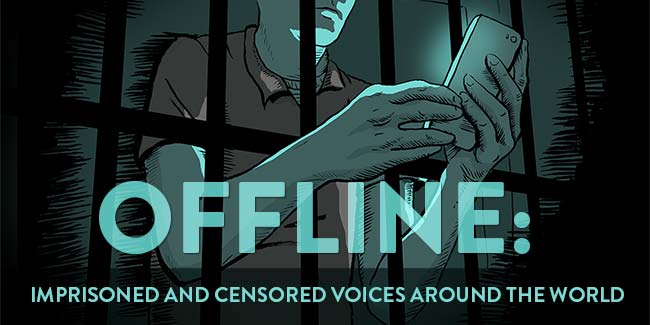Articles by Electronic Frontier Foundation (EFF)

#Offline project highlights imprisoned and censored voices globally
It’s not just those who speak out who are sent to jail. Increasingly, EFF has seen coders, designers, makers, and hackers detained or threatened with prison for their work protecting or enhancing free expression and privacy.

U.S. state appeals court urged to protect Twitter parodies
Courts have long recognized that the First Amendment protects parodies. EFF has filed a brief urging a Michigan state court of appeals to apply the same protections to parodies posted on Twitter as to parodies everywhere else.

Apple lauded for refusing U.S. government demand for iMessage backdoor
The “New York Times” recently confirmed a rumour that Apple has been involved in a dispute with the U.S. Department of Justice regarding iMessage encryption.

No to Internet censorship in Argentina
In an effort to promote tolerance and equality in Argentina, online censorship could become a reality. Argentina’s House of Representatives is currently debating a series of reforms to the National Anti-discrimination Act, a bill that was enacted in 1988.

Ashley Madison’s owners give in to temptation to misuse U.S. copyright law
Ashley Madison’s owners have been sending numerous takedown notices to platforms like Twitter, Reddit, and others in an attempt to stop the dissemination of millions of names and email addresses of the site’s users.

Japan and U.S. align on TPP provisions that harm Japanese creators
Japan’s entry into the Trans-Pacific Partnership (TPP) will see a wide range of changes sweeping the economy and the community. These include copyright changes, which unlike in many other TPP countries have sparked national attention.

Malaysia doesn’t need another 20 years of copyright, says CEO of software firm
The extension of copyright duration offers nothing but additional costs and complications for Malaysian content creators and technology innovators who do not wish to see their creativity stifled by additional copyright barriers erected all around them.

“Iconoclastic” news site facing censorship in Sri Lanka
Eight international freedom of expression groups have called for an investigation into the illegal blocking of online access to the “Colombo Telegraph”.
